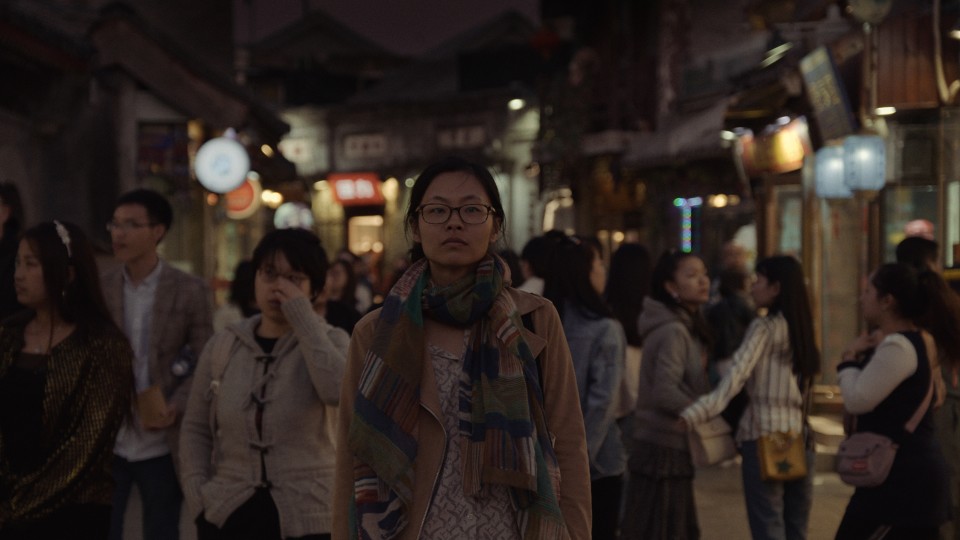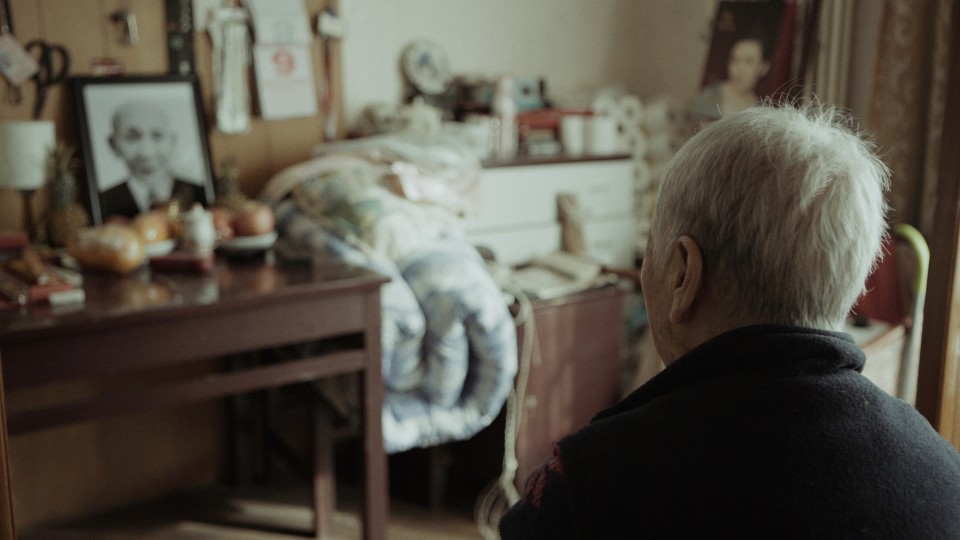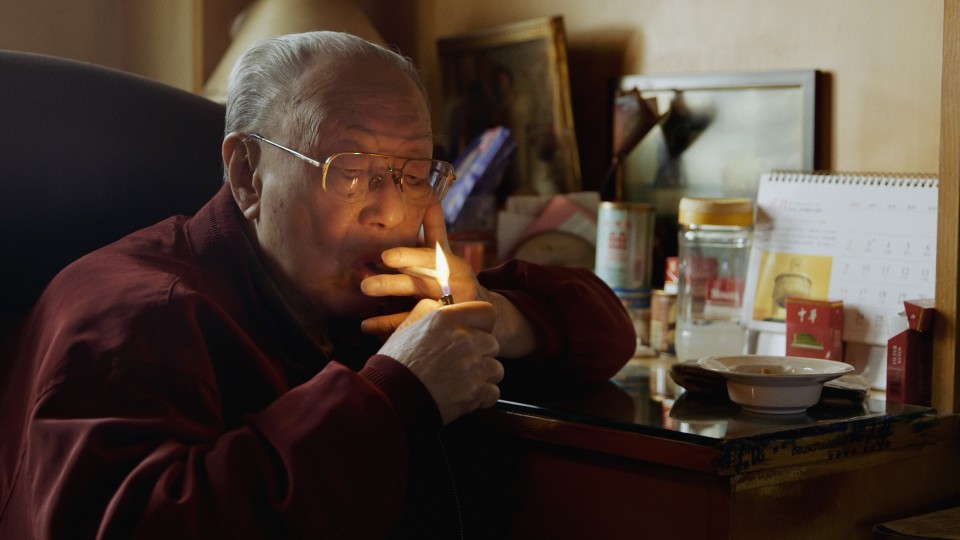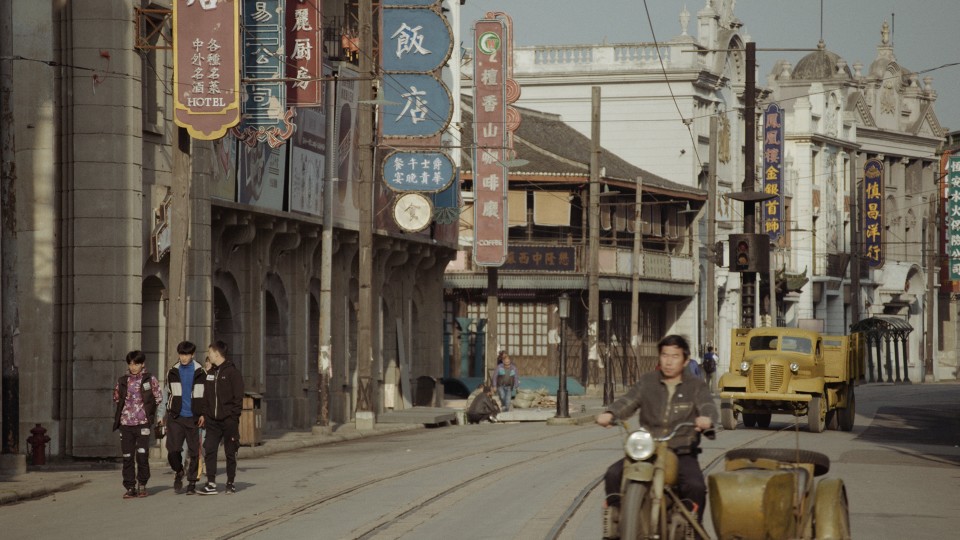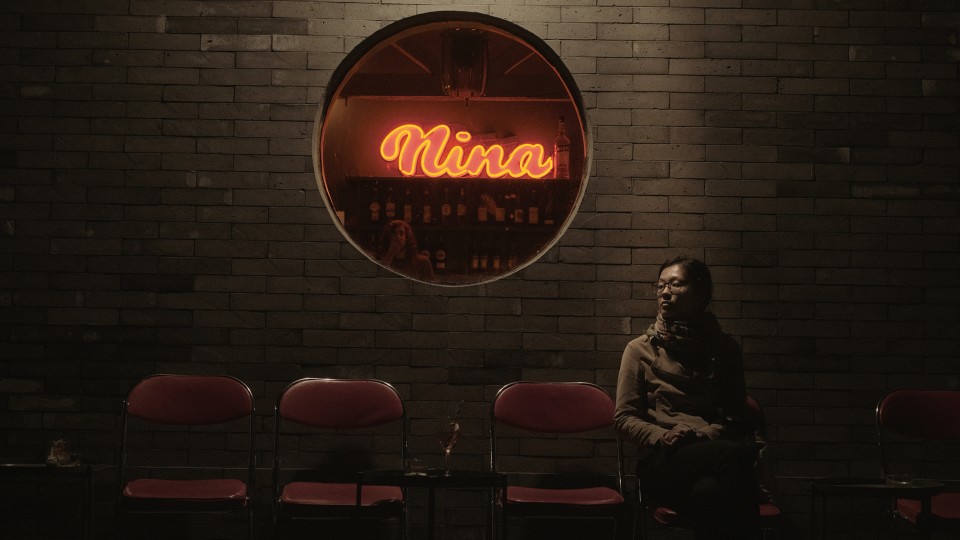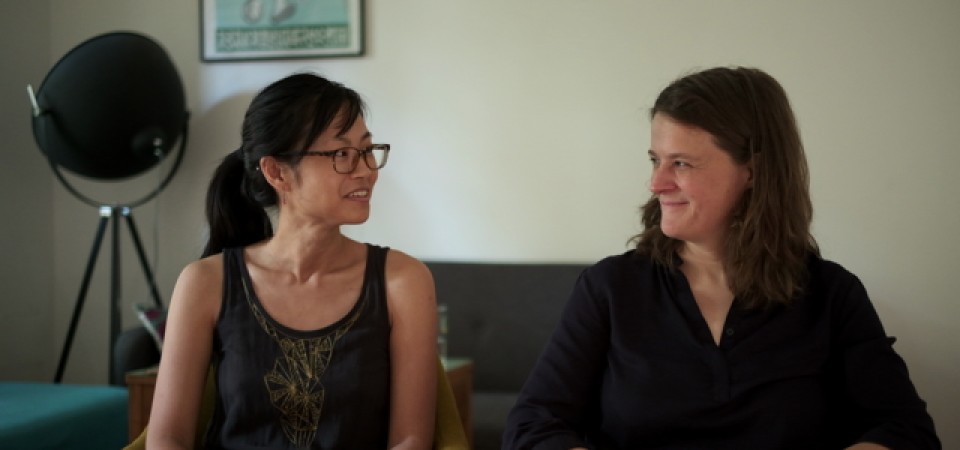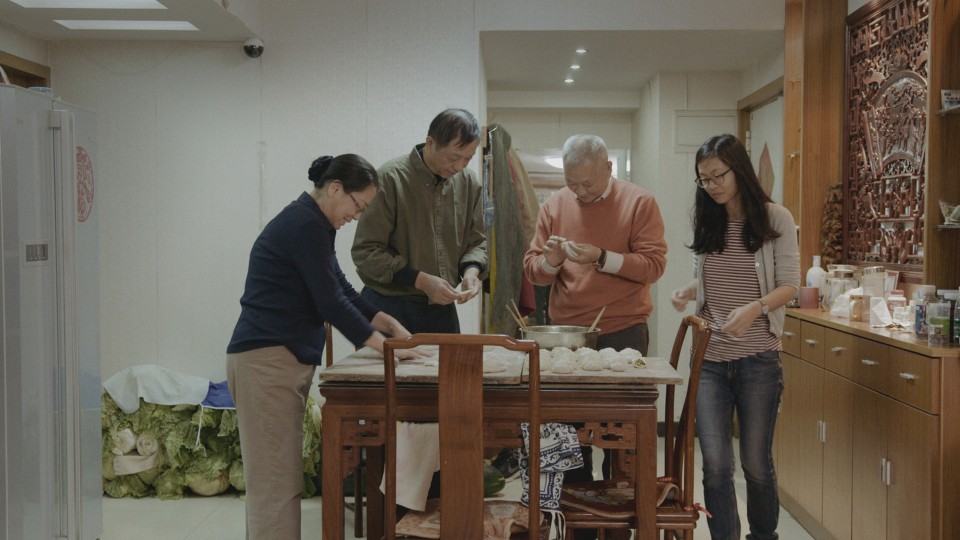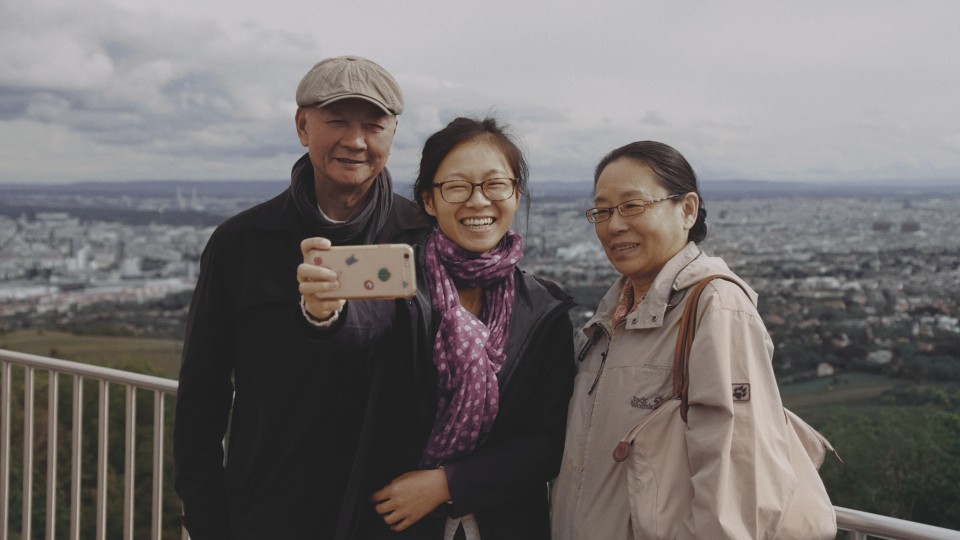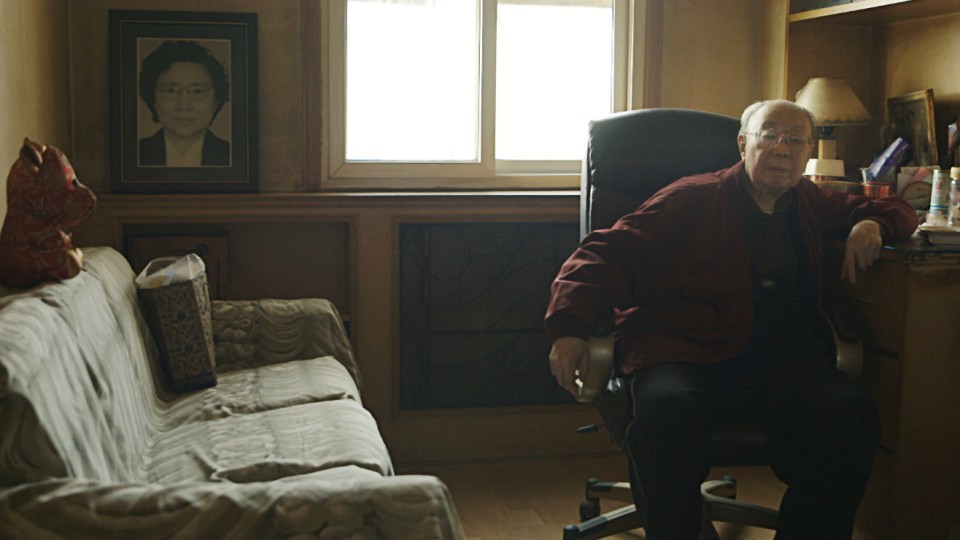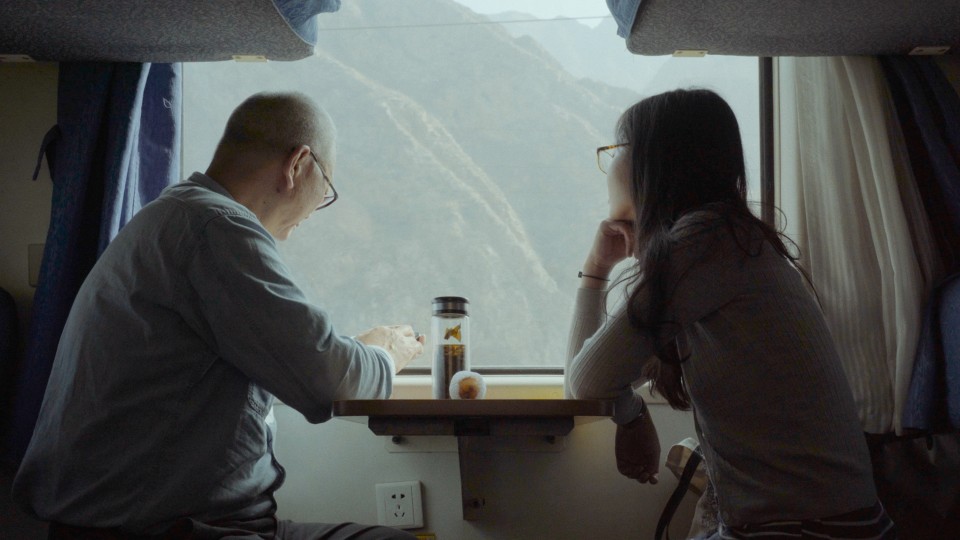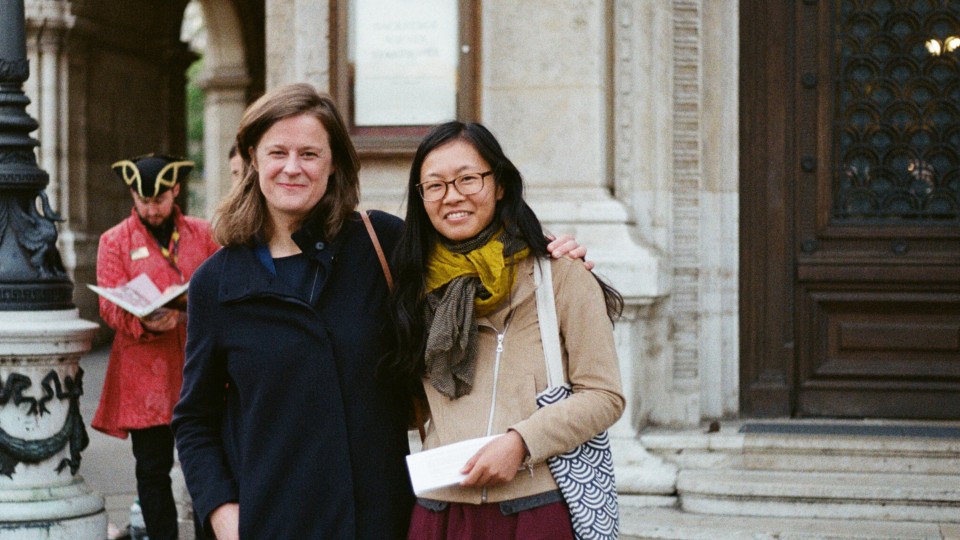For filmmaker Weina Zhao living between different worlds appears to be a firm family tradition. The very fact that her parents
got together in China after the Cultural Revolution, despite their very different backgrounds, is a little sort of a miracle
– and yet this is not the only sphere of polarities in her biography. She herself grew up in Vienna, with – or between – two
languages and cultures, between two countries, both of which dictated her identity. In Weiyena – The Long March Home she embarks upon a journey to China together with co-director Judith Benedikt in order to capture and preserve the undisclosed
memories of her family and the vanishing history of her country.
Weina Zhao, you were born in China, grew up in Austria and spent the summer holidays in China: this represents the first polarites
in your life story, and it is also one subject of WEIYENA – THE LONG MARCH HOME. However, there is also another and far larger
issue; the completely contrasting social backgrounds of your parents’ families. Could you start by giving us a brief outline
of your family history?
WEINA ZHAO: I moved to Vienna at the age of four with my mother, after my father had been living here in Austria for some time. Not long
afterwards he returned to China in order to start a business; my mother and I stayed here, but we used to spend every summer
holiday in China. It’s traditional in China for a person to be part of his or her father's family, but I always felt closer
to my mother's family, because we spent more time with them – and also because more things were talked about there. In my
father's family, apart from small talk, hardly anything was ever discussed. I knew that my mother's family had an intellectual
past. However, it was only when I studied Sinology that I fully appreciated how exceptional it was for two people to get together
in that situation, when the man came from a worker/peasant background and the woman had intellectual origins.
You focused on the subject over a period of five years. At what stage did the film become a joint project with Judith Benedikt?
JUDITH BENEDIKT: Weina told me her family story long before that. My first spontaneous thought was that it would make a fine subject for a
film. However, it was only much later that I put the idea into words. So I was involved from the very earliest stage. We then
agreed that we should start filming soon, since the protagonists were already very old.
How did you experience your role as the only outsider in the context of the film?
JUDITH BENEDIKT: The feeling of being an outsider was accentuated by the fact that I didn't understand the language, and even at the end I
could only make out a few phrases at best. If you are closely bound up with a family there are some things you can't see with
the necessary distance. As an outside observer it was much easier for me to formulate observations. And we had a huge number
of conversations. The wonderful thing about our collaboration was that it was always possible to discuss both sides and perspectives.
How did you approach the subject of space? On the one hand a lot of the filming takes place indoors, which may also be connected
with the age of the grandparents. On the other hand, it's apparent that you employ architecture is another way of making the
transformation of China tangible.
JUDITH BENEDIKT: We went to China every year from 2014 onwards, sometimes only for research purposes with a small camera. Occasionally, though
it wasn't planned, material we shot like that ended up in the film, because China is developing at such breakneck speed. You
record something during your research, and when you go back a year later it’s all different. It was definitely an advantage,
when it came to editing the film, that we could make use of material from the last six years. However, shooting indoors was
not primarily due to the age of the grandparents; it was much more because it has become increasingly difficult to film in
China. We were no longer able to obtain permits to film in the courtyards where Weina's father's parents side live. During
the last filming session, in April 2019, we couldn't film outside at all, even though we had official permits for everything.
And if you do try to film outside you only have a very short time, because the nearest security post isn't going to be more
than a minute away. I hadn't really noticed the extent of the surveillance network until our last trip.
The connection with making films has a long tradition in your family. When did you discover that your great-grandfather, Ying
Yunwei, was such an important figure in Chinese film history? Among other things, he shot the first sound film in China, in
1934.
WEINA ZHAO: I only realized during the course of my Sinology studies that many of the names I grew up with, people who were friends of
my grandparents, were in fact major figures in Chinese intellectual and cultural life during the 1930s; some of them went
on to hold important positions in the Communist Party. So it wasn't until then that I googled my great-grandfather, probably
in 2003/4. At the time there was very little to find, but he was also on the IMDB. And later more and more films appeared
on the Internet.
Unfortunately, I also appreciated far too little about my grandmother's work when I was younger. She died when I was 18. When
she returned from prison she worked as an editor and a director. In 1986, when I was born, my grandmother was in Shenzhen,
a city not far from Hong Kong, where she was involved in setting up the television station. It wasn't until much later that
I discovered my mother hardly saw her parents before the Cultural Revolution, because both of them devoted themselves so entirely
to film and theatre work. Today I regret that I wasn't more interested in the subject while they were still alive.
The film focuses not only on how memories within the family are handled but also on Chinese society and its history. And it
raises the question of what happens to a society when historical memories become entertainment.
WEINA ZHAO: This issue came to the forefront for us particularly on our last two trips to China, because we could sense the increasingly
strict controls. One striking experience in Shanghai also brought home dramatically to my mother the background to my project:
the issue of how memories are treated. We wanted to film at a place in Shanghai where there used to be a film office; my great-grandfather
worked there and actually died there. Today it’s a clock shop. We asked a security guard if we could film for a few minutes
in the courtyard. He refused, and his reason was that the film office doesn't exist any longer. When we objected that it was
a matter of history, he replied: "History is dead now. It doesn't exist any longer." My mother and my great-aunt, who was
also there, felt their hearts breaking when they heard those words. They hadn't been fully aware until that point of the official
attitude towards history and what it must mean in particular for the younger generation, who hadn't suffered under the political
regime the way they had.
The film is a clear attempt to demonstrate the significance of memories, but at the same time towards the end you pose a very
provocative question: am I really in a better place now that I know all this? And you raise certain doubts about this search,
at least at the family level. Why?
WEINA ZHAO: For me, working on the film felt like going round in a circle. Nothing has fundamentally changed in my communication with
my parents since we finished the film. While we were shooting so much came to the surface, a lot was spewed out. I saw how
much my mother suffered after that experience in Shanghai. That made me ask certain questions, such as how good – or how important
– it was to have uncovered and discussed so many things. That's why I pose that question. I'm also interested in another point:
we in Western countries believe we have found the best, the only proper way of processing the past. It's easy to forget that
this isn't the only real option when it comes to dealing with memories.
With China Reverse and now WEIYENA – THE LONG MARCH HOME the two of you have been prompted to make films, and direct them together, which explore
the interplay between two cultures. What triggered your interest in this subject area, and what conclusions have you both
arrived at?
JUDITH BENEDIKT: I find it difficult to express in just a few words what has developed during a process lasting several years, where you keep
on learning on so many different levels. To put it very simply, it helps you understand the world better. Both films focus
on something like the significance of a place you regard as home, and on humanity. The search for belonging and the feeling
of being at home, is after all a need shared by all people.
WEINA ZHAO: Both films deal with the issue of living between different worlds. In China Reverse the focus is on the first generation of
people who came to Austria from China. Their way of coming to terms with their identity is different to mine today, and to
that of the second generation which grew up here in Austria. Over recent years I've explored in great depth the representation
– or rather non-representation – of Asian people in German-speaking countries, and I experience again and again the feeling
of frustration, the sense of being permanently misunderstood and of being perceived as somebody that simply isn’t you. And
at the same time, you are expected as an individual to represent the entire group. It is of great importance to me that the
audience should see every person in the film as an individual and not as a stereotype.
Interview: Karin Schiefer
April 2020
Translation: Charles Osborne

